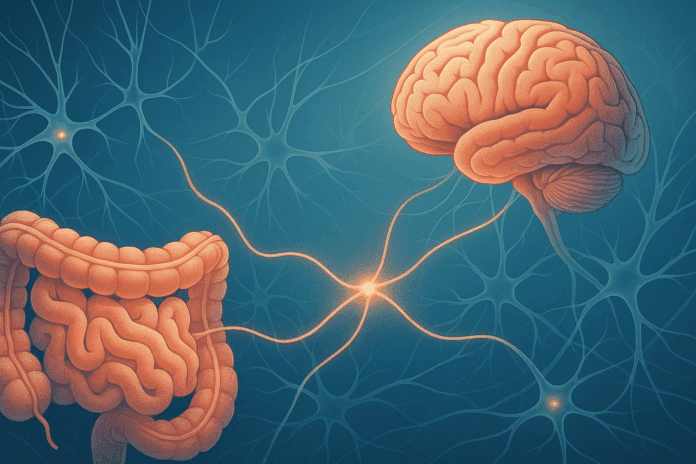The intricate relationship between the human digestive system and mental health has emerged as one of the most groundbreaking revelations in contemporary medical science. In particular, the lower gastrointestinal tract, often overshadowed by the more commonly discussed brain and nervous system, plays a pivotal role in emotional regulation, cognitive function, and psychological well-being. As research deepens, it becomes increasingly evident that understanding the anatomy and function of the lower bowel and related systems isn’t merely a matter of gastrointestinal comfort—it is foundational to grasping the full spectrum of mental health. This article explores how the lower GI organs communicate with the brain, how dysfunctions within the lower digestive tract can influence mood disorders, and why prioritizing digestive health is essential to mental well-being.
You may also like: How Gut Health Affects Mental Health: Exploring the Gut-Brain Connection Behind Anxiety, Mood, and Depression
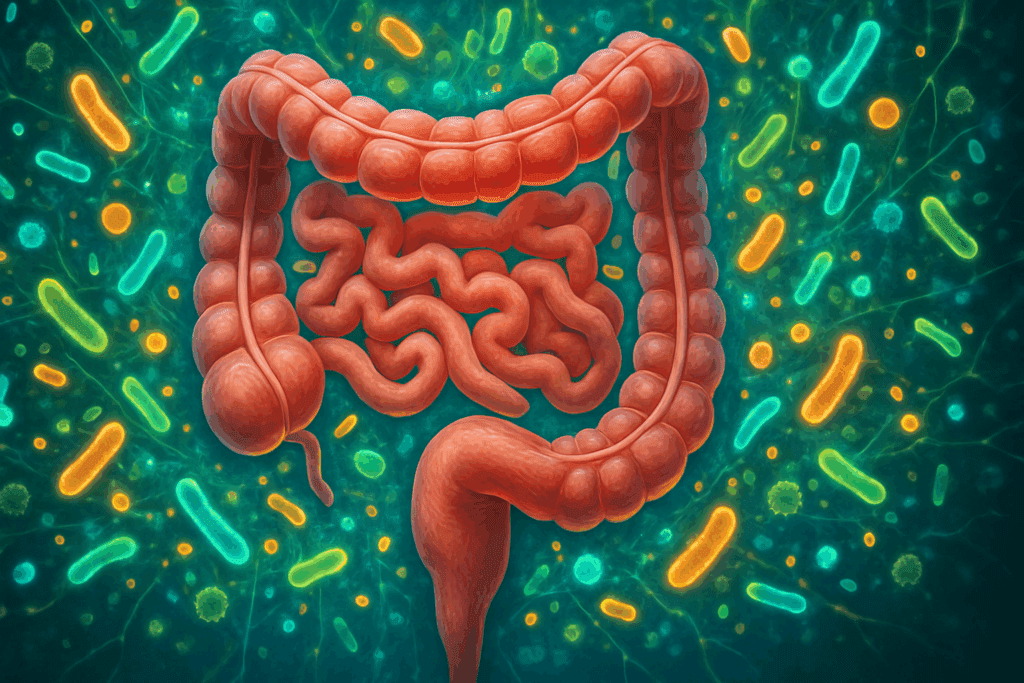
Understanding the Lower Gastrointestinal System and Its Broader Role
To appreciate the connection between gut health and mental health, one must first ask: what are bowels, and why are they central to this relationship? The term “bowel” refers broadly to the intestines, with the lower bowel encompassing the colon, rectum, and anus. These organs are integral components of the lower gastrointestinal system, also known as the lower GI. The lower GI functions as more than a waste-processing unit; it plays a vital role in nutrient absorption, immune system function, and neurotransmitter production.
The lower digestive system, which includes the small intestine’s terminal portion and the entirety of the large intestine, is densely populated with trillions of microorganisms collectively referred to as the gut microbiota. These organisms interact with intestinal cells, the immune system, and nerve endings within the gut, creating a dynamic and responsive environment. When we talk about the lower GI organs, we are referencing not only their mechanical and chemical functions but also their deeply integrated neural and hormonal communications with the rest of the body.
This dense neural network is so sophisticated that scientists often refer to the gut as the “second brain.” It contains its own complex network of neurons—the enteric nervous system—which operates semi-independently from the central nervous system. This bidirectional communication between the brain and the lower digestive tract, commonly called the gut-brain axis, is key to understanding how the state of our gut can influence everything from stress levels to mood stability.
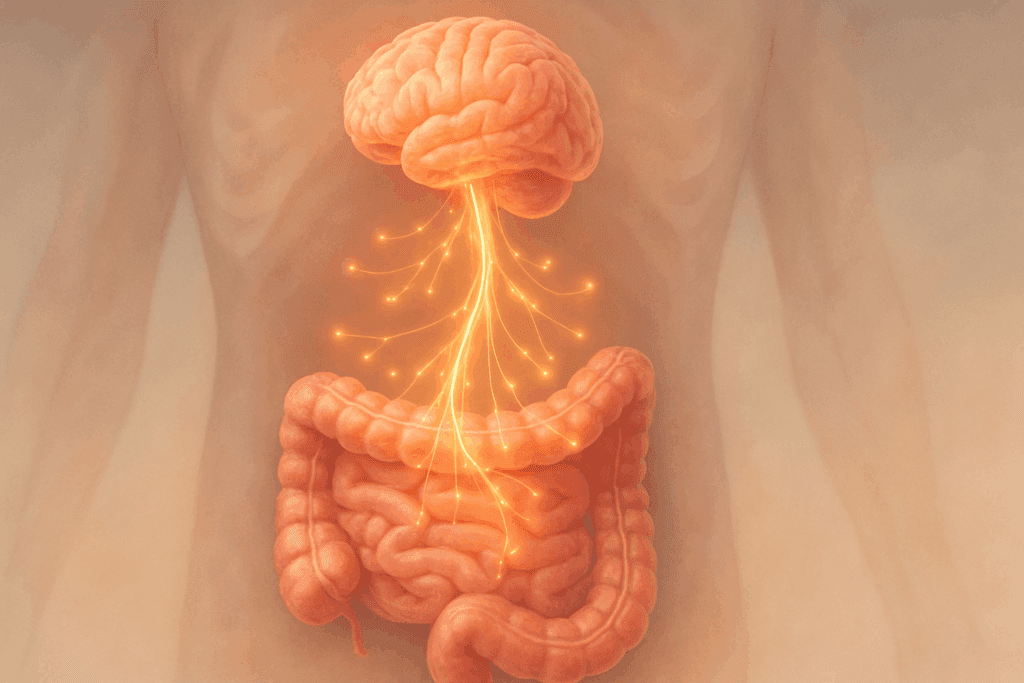
The Gut-Brain Axis: A Two-Way Communication Superhighway
The gut-brain axis refers to the intricate, constant communication between the gastrointestinal system and the central nervous system. Although this dialogue spans the entire GI tract, the lower gastrointestinal system plays a particularly important role. Signals from the lower bowel are transmitted via the vagus nerve and through the release of various biochemical messengers, including neurotransmitters like serotonin, dopamine, and gamma-aminobutyric acid (GABA).
Serotonin is of special interest in this conversation. Nearly 90% of the body’s serotonin—a neurotransmitter closely associated with mood regulation—is synthesized in the gut, specifically within cells lining the lower digestive tract. This statistic alone underscores the importance of gut health in emotional stability. The production and modulation of serotonin by gut bacteria mean that any imbalance in the microbiota—known as dysbiosis—can have direct psychological effects.
Research has shown that disturbances in the lower GI environment, including inflammation, infection, or disruptions in bowel motility, can send distress signals to the brain, resulting in heightened anxiety, depression, or irritability. This phenomenon is bidirectional: psychological stress can, in turn, impair lower bowel function, causing symptoms such as constipation, diarrhea, or abdominal pain. The symbiotic nature of this relationship points to a critical feedback loop where mental and digestive health continuously inform and affect one another.
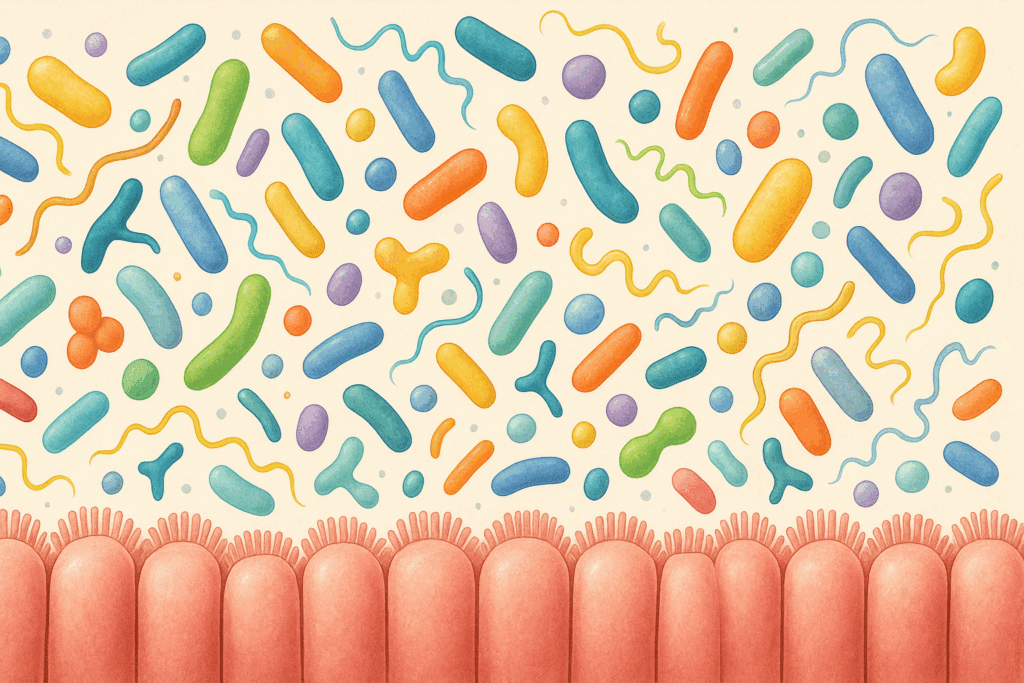
Microbiota and Mental Health: The Invisible Influencers in the Lower Bowel
One of the most compelling aspects of this conversation is the role of the gut microbiota, particularly those residing in the lower digestive system. These microbial populations are more than passive residents; they are active participants in the regulation of inflammation, metabolism, immune response, and neurological signaling. The balance of these microorganisms within the lower bowel has been linked to cognitive function, emotional resilience, and susceptibility to mental illness.
For instance, studies involving fecal transplants from individuals with depression into germ-free mice have demonstrated that these mice begin to display depressive-like behavior. This suggests that the microbial environment of the lower GI system directly contributes to psychological states. Furthermore, specific bacterial strains found in a healthy lower digestive tract are known to produce short-chain fatty acids (SCFAs), which have anti-inflammatory effects on the brain and can protect against neurodegeneration.
When the microbial balance in the lower GI is disrupted—often due to antibiotic overuse, poor dietary habits, or chronic stress—it may lead to increased gut permeability. Sometimes referred to as “leaky gut,” this condition allows unwanted substances to pass through the intestinal lining and into the bloodstream, triggering systemic inflammation. Inflammation is a known contributor to mood disorders, including major depressive disorder and generalized anxiety disorder. Thus, the state of the lower digestive tract plays an undeniable role in setting the stage for psychological health or dysfunction.
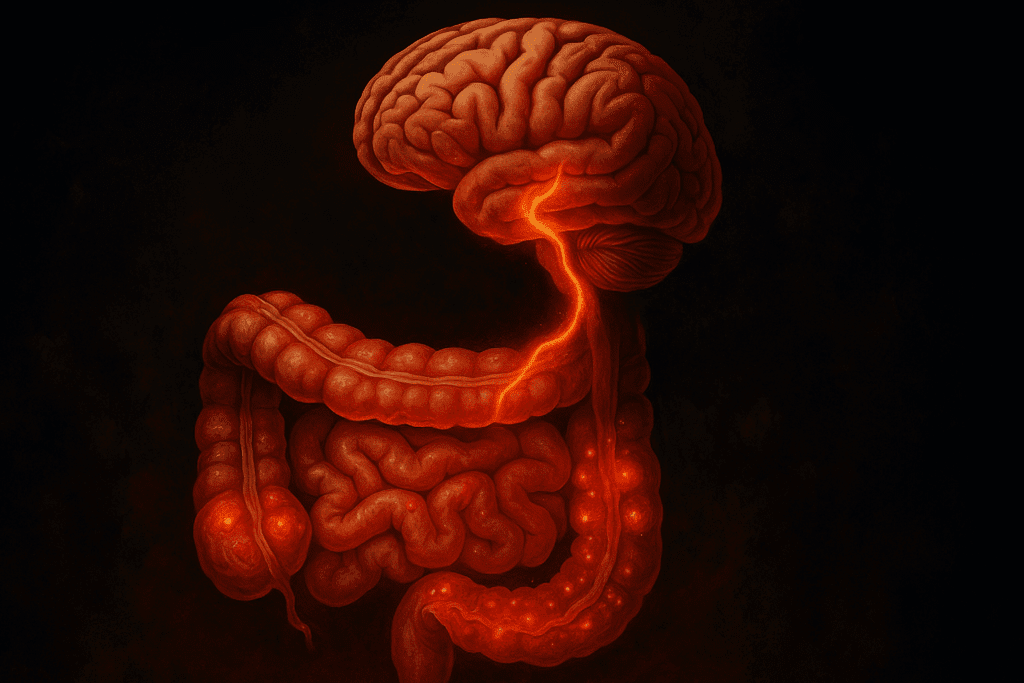
Inflammation and the Lower GI: A Hidden Catalyst for Mood Disorders
Inflammation originating in the lower gastrointestinal system has far-reaching consequences that extend well beyond digestive discomfort. When the lining of the lower bowel becomes irritated or inflamed, it initiates an immune response that can release pro-inflammatory cytokines. These molecules not only disrupt the gut environment but also cross the blood-brain barrier, where they can alter neurotransmitter metabolism and brain function.
Elevated levels of inflammatory cytokines have been observed in individuals with depression and anxiety, as well as in patients with gastrointestinal diseases like irritable bowel syndrome (IBS) and inflammatory bowel disease (IBD). In fact, there is a significant overlap between psychiatric symptoms and GI disorders, which underscores the importance of viewing mental and digestive health through an integrated lens. The lower GI organs, once thought to function in isolation from the emotional centers of the brain, are now recognized as active participants in shaping psychological well-being.
Moreover, chronic inflammation in the lower digestive system may impair the production of key vitamins and nutrients needed for optimal brain function, including B vitamins, magnesium, and omega-3 fatty acids. These deficiencies can exacerbate mood instability, cognitive decline, and fatigue. Therefore, any long-term plan for improving mental health should include a comprehensive assessment of lower GI health.

The Impact of Diet on the Lower Digestive Tract and Psychological Wellness
Nutrition plays a crucial role in maintaining the integrity and functionality of the lower digestive system. A diet rich in fiber, prebiotics, and fermented foods supports a diverse and balanced microbiota in the lower bowel, which in turn fosters the production of mood-regulating neurotransmitters and anti-inflammatory compounds. Conversely, diets high in processed foods, sugars, and unhealthy fats can lead to dysbiosis and increased intestinal permeability.
It is increasingly clear that dietary interventions targeting the lower gastrointestinal system can have profound effects on mental health. For example, the Mediterranean diet—which emphasizes whole grains, legumes, fruits, vegetables, and healthy fats—has been associated with lower rates of depression and cognitive decline. These benefits are likely due to the diet’s ability to nourish the lower digestive tract and cultivate a favorable gut microbiota profile.
Additionally, eliminating food intolerances and allergens that irritate the lower GI, such as gluten or lactose in sensitive individuals, can alleviate both digestive symptoms and psychological distress. Functional medicine approaches often begin with restoring gut health as a precursor to treating mood disorders, highlighting the central role of the lower bowel in overall well-being.
Stress, the Autonomic Nervous System, and Gut Dysfunction
Stress and its physiological manifestations have a dramatic impact on the function of the lower GI system. Acute and chronic stress can disrupt the autonomic nervous system, which governs involuntary functions such as digestion, heart rate, and respiration. Under stress, the body enters a sympathetic state, often referred to as “fight or flight,” which downregulates digestive activity in favor of prioritizing energy for perceived threats.
This shift results in slowed motility, altered secretion of digestive enzymes, and increased gut permeability—all of which contribute to lower GI dysfunction. Over time, these changes may become entrenched, leading to chronic conditions like constipation, IBS, or even ulcerative colitis. Moreover, the feedback loop between mental stress and bowel bowel symptoms creates a self-perpetuating cycle that can be difficult to interrupt without targeted intervention.
Mind-body practices such as meditation, yoga, deep breathing, and biofeedback have shown promising results in calming the nervous system and improving lower bowel function. These techniques not only reduce stress-induced gut inflammation but also promote a parasympathetic state—commonly known as “rest and digest”—which enhances nutrient absorption and gastrointestinal healing. The dual benefit of mental and digestive regulation makes these strategies particularly valuable for individuals seeking holistic approaches to health.
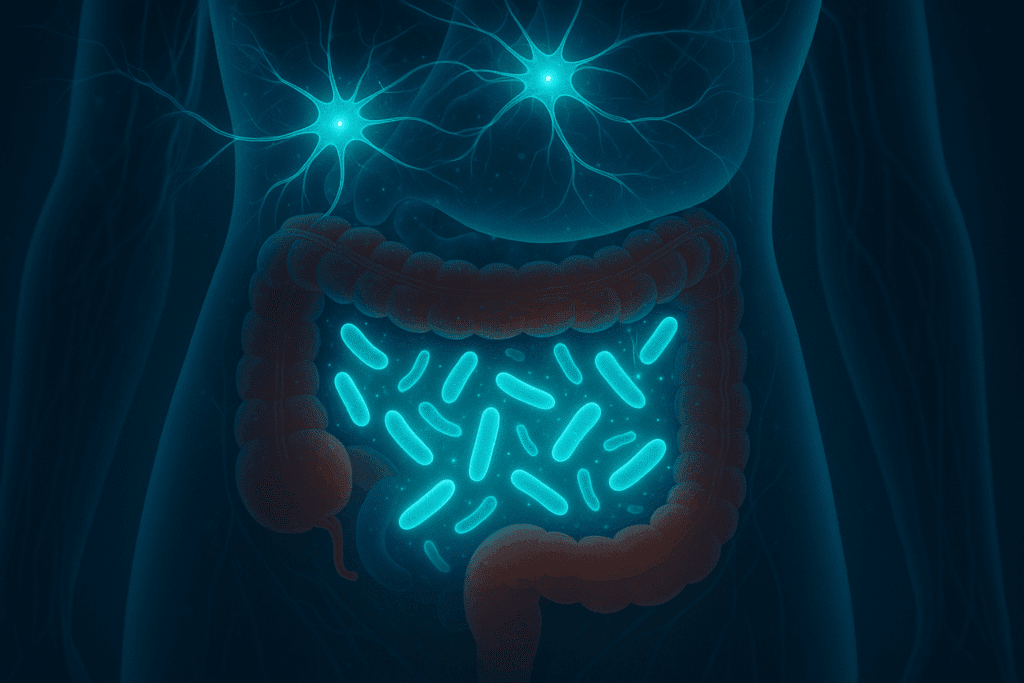
Probiotics, Psychobiotics, and the Future of Gut-Brain Therapy
As the understanding of the gut-brain connection deepens, the therapeutic use of probiotics and emerging “psychobiotics” has gained attention. Psychobiotics refer to specific strains of beneficial bacteria that, when ingested, exert a positive influence on mental health through their action on the lower GI and its connection to the brain.
These bacteria produce neuroactive compounds, reduce inflammation, and help restore balance to the gut microbiota. Clinical studies have begun to demonstrate that supplementation with certain probiotics can improve symptoms of depression, anxiety, and stress. While more research is needed to identify which strains are most effective for specific mental health conditions, the potential of psychobiotics to transform treatment paradigms is promising.
This line of therapy underscores the significance of nurturing the lower gastrointestinal environment as a means of promoting emotional resilience. It also invites a shift in perspective, moving from symptom suppression to root-cause healing, where the state of the lower digestive tract becomes a primary focus in psychiatric care. Given the accessibility and safety of most probiotic interventions, they represent a viable adjunct to traditional therapies for many individuals.
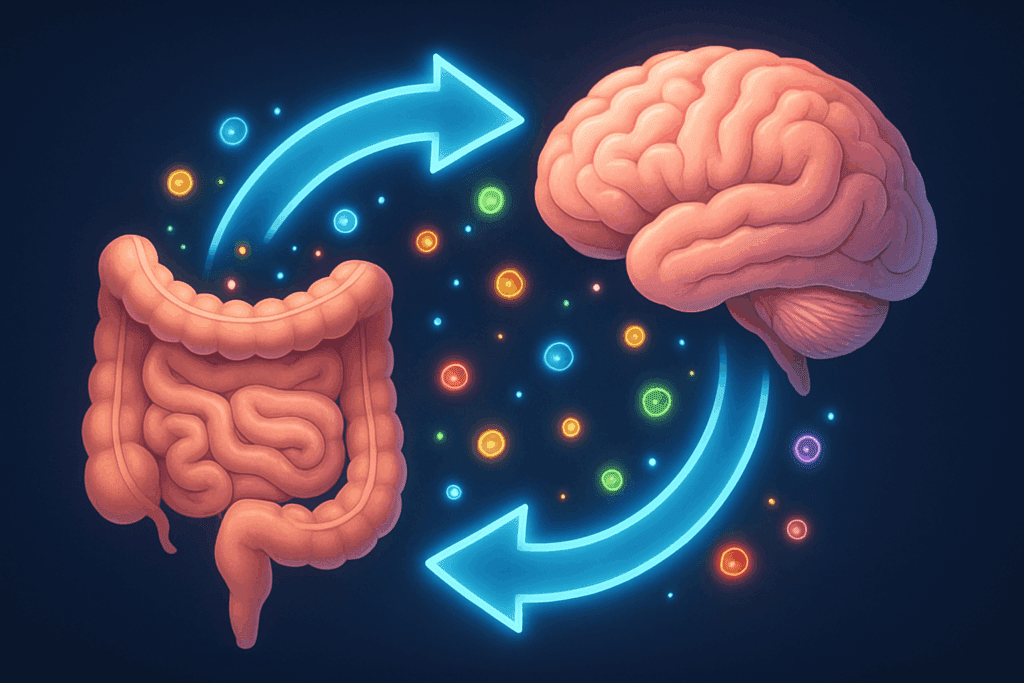
Recognizing the Lower GI as a Vital Organ System for Mental Health
Despite its essential functions, the lower GI system has historically been overlooked in discussions of psychological health. However, a growing body of interdisciplinary research is beginning to elevate the lower bowel from a purely physical organ to a key player in neuropsychology. This evolving understanding has important implications for medical practice, public health education, and self-care strategies.
Acknowledging the link between the lower digestive tract and the brain empowers individuals to take proactive steps in protecting both physical and mental health. Simple daily practices—such as eating a fiber-rich diet, managing stress, avoiding unnecessary antibiotics, and incorporating gut-friendly supplements—can make a profound difference. This reconceptualization of the bowel bowel not as an endpoint of digestion but as a dynamic communication hub redefines how we think about health.
In the clinical setting, practitioners are increasingly encouraged to consider gastrointestinal symptoms as relevant data points in the diagnosis and treatment of mental health conditions. Integrative and functional medicine models already prioritize gut health in managing depression, anxiety, and even neurodevelopmental disorders such as autism. By embracing a systems-based approach that includes the lower GI, healthcare providers can offer more comprehensive and effective treatment plans.
Frequently Asked Questions: How the Lower Gastrointestinal System Affects Mental Health
1. How can emotional trauma affect the function of the lower gastrointestinal system?
Emotional trauma has a profound physiological footprint, and its effects often manifest in the lower gastrointestinal system. Chronic psychological stress, especially when stemming from unresolved trauma, can dysregulate the enteric nervous system, which governs much of the bowel bowel’s autonomy. Over time, this dysregulation may alter gut motility, reduce microbial diversity in the lower digestive tract, and even lead to inflammatory conditions in the lower GI. Survivors of trauma are disproportionately represented among those diagnosed with irritable bowel syndrome and other lower bowel disorders, suggesting a biopsychosocial loop in which mental and digestive dysfunction reinforce one another. Addressing trauma through integrative therapies can help restore equilibrium to both brain and bowel, providing relief for individuals struggling with mental and gastrointestinal symptoms simultaneously.
2. Are there early warning signs in the lower GI that may predict future mental health issues?
Interestingly, the lower digestive system often sends distress signals before cognitive or emotional symptoms become clinically evident. Persistent bloating, altered bowel habits, and chronic inflammation in the lower bowel can be early biomarkers of an emerging gut-brain imbalance. Since the lower GI produces key neurotransmitters and interacts closely with the immune system, subtle dysfunctions may precede or coincide with mood shifts, anxiety, or cognitive fog. Gastroenterologists and mental health practitioners are beginning to view certain lower GI symptoms not merely as digestive complaints but as potential harbingers of psychological disruption. Regularly monitoring the health of the lower gastrointestinal tract, particularly in individuals with a family history of depression or anxiety, may offer a valuable window into preclinical mental health management.
3. What role does the circadian rhythm play in regulating the lower GI and mood connection?
The circadian rhythm exerts regulatory control over many systems in the body, and the lower gastrointestinal system is no exception. The microbiota in the lower bowel follows a diurnal cycle, influencing digestion, hormone release, and the sleep-wake cycle. When circadian rhythms are disrupted—due to shift work, insomnia, or jet lag—the function of the lower digestive tract suffers. These changes can contribute to dysbiosis and impair serotonin synthesis in the lower GI, which may lead to mood instability and fatigue. By synchronizing lifestyle habits with natural light-dark patterns and promoting consistent sleep routines, individuals can support both bowel health and emotional balance through circadian alignment.
4. How does long-term use of psychiatric medications affect the lower gastrointestinal system?
Long-term use of psychiatric medications, including SSRIs and antipsychotics, can have unintended consequences on the lower digestive system. These medications may alter gut motility, affect gastric secretions, or change the composition of the microbiome in the lower GI organs. For example, SSRIs can increase serotonin in the gut, sometimes leading to diarrhea, while antipsychotics may contribute to constipation by slowing lower bowel function. Additionally, medications that affect appetite or nutrient absorption can indirectly alter microbial balance in the lower digestive tract. Collaborative care between psychiatrists and gastroenterologists is essential when addressing long-term mental health to mitigate any unintended impacts on the lower gastrointestinal system.
5. Can exercise improve the gut-brain connection through the lower GI tract?
Yes, regular physical activity offers a range of benefits for the lower digestive tract and, by extension, the gut-brain axis. Moderate aerobic exercise promotes peristalsis in the lower bowel, which can help prevent constipation and support microbial diversity. Movement also reduces systemic inflammation, stabilizes blood glucose, and enhances vagal tone—all of which support the communication between the lower GI and the brain. Studies have shown that individuals who exercise regularly have more resilient gut microbiota, especially in the lower gastrointestinal regions. Thus, incorporating movement into one’s daily routine can support not just cardiovascular or muscular health but also mental clarity through the optimization of lower digestive system function.
6. How do antibiotics disrupt the lower GI’s influence on mental health?
Antibiotics, while crucial for fighting infections, can significantly disrupt the microbial environment of the lower bowel. These medications often reduce microbial diversity, wiping out beneficial bacteria in the lower digestive tract that play roles in mood regulation, immune modulation, and inflammation control. Such imbalances may lead to gut dysbiosis, which has been associated with increased risk for anxiety, depression, and even cognitive decline. Recovery from antibiotic-related disruption in the lower gastrointestinal system may involve targeted probiotic therapy, prebiotic-rich foods, and a focus on fiber intake to restore healthy microbiota populations. Understanding the risks and taking preventive steps can help preserve the gut-brain communication network after antibiotic use.
7. Are fermented foods beneficial for the lower digestive tract and mood regulation?
Fermented foods like kefir, kimchi, sauerkraut, and yogurt are rich in live microorganisms that can colonize and support the lower GI tract. These foods introduce beneficial bacteria directly into the lower digestive system, improving microbial diversity and supporting the synthesis of mood-enhancing compounds like short-chain fatty acids and neurotransmitter precursors. Emerging research suggests that regular intake of fermented foods may lower inflammation and reduce anxiety symptoms, particularly when the lower gastrointestinal barrier is compromised. The synergy between naturally occurring probiotics and existing microbes in the bowel bowel ecosystem is an exciting frontier for both dietary science and mental health interventions. Including fermented foods as part of a holistic mental wellness plan is a promising, accessible strategy for many individuals.
8. How does aging affect the lower GI’s contribution to cognitive health?
As we age, the composition and functionality of the lower bowel change, which can affect the broader gut-brain axis. A decline in microbial diversity, slowed peristalsis, and decreased mucosal immunity in the lower digestive system can lead to increased inflammation and compromised nutrient absorption. These factors may contribute to cognitive decline, as the brain becomes more vulnerable to oxidative stress and reduced neurotransmitter availability. The lower GI organs become less efficient at supporting the production and regulation of compounds essential for memory, attention, and emotional stability. Interventions such as dietary enrichment, fiber supplementation, and probiotics tailored to aging populations may help preserve both gut and brain health well into older adulthood.
9. Are there specific lab tests to assess the impact of the lower GI on mental health?
Yes, several emerging diagnostic tools aim to evaluate how the lower gastrointestinal system may be influencing mental health. Comprehensive stool analyses can provide insights into the microbial populations in the lower GI, including markers for inflammation, pathogenic overgrowth, and short-chain fatty acid levels. Additionally, intestinal permeability panels and gut-brain axis biomarkers, such as zonulin and calprotectin, help assess whether the bowel bowel lining is intact or compromised. These tests offer a snapshot of the lower digestive tract’s condition and its systemic effects, including neuroinflammatory markers that correlate with mood disorders. Functional medicine practitioners often use these tools to develop targeted protocols that bridge gut and mental health care.
10. What innovations are shaping the future of lower GI-focused mental health treatments?
The intersection of neuroscience and gastroenterology has birthed a wave of innovations focused on the lower gastrointestinal system as a therapeutic entry point for mental health care. Microbiome mapping technologies are allowing researchers to identify precise microbial imbalances in the lower bowel linked to specific psychiatric profiles. Psychobiotics—strains of probiotics that target mental health—are being developed and tested with increasing precision. In parallel, advances in fecal microbiota transplantation protocols are being explored not just for infections, but also for treatment-resistant depression linked to lower digestive system dysfunction. These innovations signal a future where mental health treatments may be personalized based on the microbial fingerprint of an individual’s lower GI tract, redefining what it means to approach psychiatric care from the inside out.
Reframing Health: Why Your Lower GI Deserves More Attention
In conclusion, the lower gastrointestinal system is far more than an anatomical afterthought. It is a biochemical powerhouse and a neural communicator, deeply interwoven with the most delicate aspects of our mental and emotional health. Understanding what are bowels in the full sense—their structure, function, microbial inhabitants, and bidirectional signaling pathways—opens new doors for preventing and managing a wide array of mental health conditions.
When we consider the lower bowel not simply as a site of digestion but as a dynamic organ system influencing cognition, mood, and resilience, we uncover a new paradigm of health care. The gut-brain axis is not merely a scientific curiosity; it is a vital roadmap toward holistic well-being. Maintaining a healthy lower digestive tract through diet, lifestyle, and stress management is no longer a fringe idea—it is an evidence-based priority.
As public awareness grows and science continues to unveil the nuances of this complex relationship, the lower digestive system will no doubt gain the attention it deserves. In doing so, we not only support our gut health but also pave the way for a future where mental health is addressed with the depth, complexity, and integration it truly requires.
Further Reading:
Gut microbiota’s effect on mental health: The gut-brain axis

